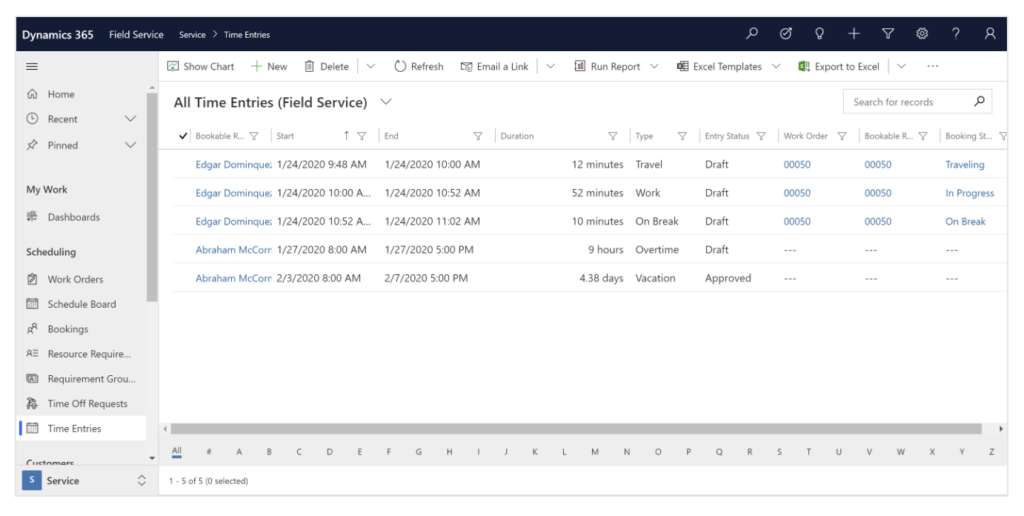There are many benefits to time management in ERP. Perhaps the most obvious benefit is that it can help you to optimize your workflow and improve efficiency. By understanding how your employees are spending their time, you can identify areas where bottlenecks occur or where there is room for improvement. In addition, ERP time tracking can also help you to better understand your costs. This information can be extremely valuable when it comes to budgeting and forecasting. Knowing how much time is being spent on certain tasks can help you to make more informed decisions about where to allocate your resources.
Why you need time management in ERP
ERP time management is essential for several reasons, including:
Accurate Job Costing
ERP time tracking allows businesses to accurately calculate the cost of a project, job or task. This information is crucial for accurately billing clients, managing project budgets and making strategic business decisions.
Resource Planning
By tracking time, ERP systems can provide businesses with insight into how much time is being spent on each task, project or job. This information can help businesses to allocate resources more effectively, ensuring that they have the right people working on the right projects at the right time.
Payroll and Benefits
Time tracking in an ERP system can automate the process of calculating employee payroll and benefits. By automatically tracking time, the ERP system can ensure that employees are paid accurately for the time they work and that their benefits are calculated correctly.
Compliance
Many industries have specific labor laws and regulations that require employers to track employee hours worked. By using an ERP system for time tracking, businesses can ensure that they are compliant with these laws and regulations.
Performance Metrics
Time tracking can be used to measure employee and team performance. By comparing the amount of time spent on specific tasks or projects, businesses can identify areas where employees may need additional training or support, and make adjustments to improve overall performance.
Time Tracking for Dynamics 365
Accurate time tracking is critical, especially for professional services companies, as it forms the foundation for precise invoicing. With Microsoft’s Dynamics 365 Field Service, time tracking can be useful for:
- Reporting
- Understanding utilization
- Billing and invoicing for services
There are three distinct methods for creating time tracking in Dynamics 365 Field Service:
- automatically during the work order process
- manually for custom business processes
- automatically for time-off requests

Dynamics 365 provides viable options for businesses looking to track employee hours in their ERP system. There are multiple third-party apps available to integrate with Dynamics 365, offering flexible and efficient ERP time tracking solutions.
How to master time management in ERP
With the vast amounts of data and complex processes involved in ERP, effective time management is critical to ensure efficiency and productivity.
Here are some essential tips for mastering time management in ERP:
- Set clear priorities: It’s essential to prioritize tasks and allocate time accordingly. This will help you stay on track and ensure that important tasks are completed on time.
- Use automation: Automation can be a powerful tool in time management. It can help streamline processes, reduce errors, and free up time for more strategic tasks.
- Leverage technology: ERP systems are designed to streamline and automate processes, so make sure you’re taking advantage of all the available features. For example, use alerts and reminders to keep you on track and help you meet deadlines.
- Communicate effectively: Communication is key to efficient time management. Make sure everyone involved in a project or task is aware of timelines and expectations.
- Take breaks: It may seem counterintuitive, but taking breaks can actually help boost productivity. Regular breaks can help prevent burnout and help you stay focused when you’re working.
- Track your time: Use time tracking tools to help you understand where your time is going. This will help you identify areas where you can improve your efficiency and productivity.
- Learn from mistakes: Everyone makes mistakes, but the key is to learn from them. Take the time to reflect on what went wrong and how you can improve next time.
Conclusion
Overall, tracking time in an ERP system is essential for businesses that want to stay on top of project progress, measuring employee performances and even setting internal goals. Accurately keeping track of all activities mitigates risk and improves team effectiveness, allowing business leaders to identify productivity gaps that may need to be addressed.
With the valuable insights shared in this article on mastering time management in ERP, you will gain the knowledge needed to boost productivity and optimize efficiency in your business. By implementing the tips outlined here, you can streamline processes, automate tasks, communicate more effectively, and prioritize your workload to achieve your goals in a timely and efficient manner.

